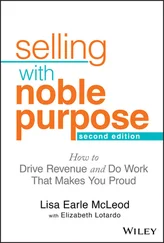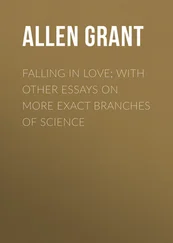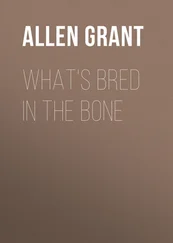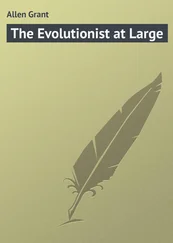Grant Allen - Hilda Wade, a Woman with Tenacity of Purpose
Здесь есть возможность читать онлайн «Grant Allen - Hilda Wade, a Woman with Tenacity of Purpose» — ознакомительный отрывок электронной книги совершенно бесплатно, а после прочтения отрывка купить полную версию. В некоторых случаях можно слушать аудио, скачать через торрент в формате fb2 и присутствует краткое содержание. Жанр: foreign_prose, literature_19, foreign_antique, на английском языке. Описание произведения, (предисловие) а так же отзывы посетителей доступны на портале библиотеки ЛибКат.
- Название:Hilda Wade, a Woman with Tenacity of Purpose
- Автор:
- Жанр:
- Год:неизвестен
- ISBN:нет данных
- Рейтинг книги:3 / 5. Голосов: 1
-
Избранное:Добавить в избранное
- Отзывы:
-
Ваша оценка:
- 60
- 1
- 2
- 3
- 4
- 5
Hilda Wade, a Woman with Tenacity of Purpose: краткое содержание, описание и аннотация
Предлагаем к чтению аннотацию, описание, краткое содержание или предисловие (зависит от того, что написал сам автор книги «Hilda Wade, a Woman with Tenacity of Purpose»). Если вы не нашли необходимую информацию о книге — напишите в комментариях, мы постараемся отыскать её.
Hilda Wade, a Woman with Tenacity of Purpose — читать онлайн ознакомительный отрывок
Ниже представлен текст книги, разбитый по страницам. Система сохранения места последней прочитанной страницы, позволяет с удобством читать онлайн бесплатно книгу «Hilda Wade, a Woman with Tenacity of Purpose», без необходимости каждый раз заново искать на чём Вы остановились. Поставьте закладку, и сможете в любой момент перейти на страницу, на которой закончили чтение.
Интервал:
Закладка:
Grant Allen
Hilda Wade, a Woman with Tenacity of Purpose
In putting before the public the last work by Mr. Grant Allen, the publishers desire to express their deep regret at the author’s unexpected and lamented death—a regret in which they are sure to be joined by the many thousand readers whom he did so much to entertain. A man of curiously varied and comprehensive knowledge, and with the most charming personality; a writer who, treating of a wide variety of subjects, touched nothing which he did not make distinctive, he filled a place which no man living can exactly occupy. The last chapter of this volume had been roughly sketched by Mr. Allen before his final illness, and his anxiety, when debarred from work, to see it finished, was relieved by the considerate kindness of his friend and neighbour, Dr. Conan Doyle, who, hearing of his trouble, talked it over with him, gathered his ideas, and finally wrote it out for him in the form in which it now appears—a beautiful and pathetic act of friendship which it is a pleasure to record.
CHAPTER I
THE EPISODE OF THE PATIENT WHO DISAPPOINTED HER DOCTOR
Hilda Wade’s gift was so unique, so extraordinary, that I must illustrate it, I think, before I attempt to describe it. But first let me say a word of explanation about the Master.
I have never met anyone who impressed me so much with a sense of GREATNESS as Professor Sebastian. And this was not due to his scientific eminence alone: the man’s strength and keenness struck me quite as forcibly as his vast attainments. When he first came to St. Nathaniel’s Hospital, an eager, fiery-eyed physiologist, well past the prime of life, and began to preach with all the electric force of his vivid personality that the one thing on earth worth a young man’s doing was to work in his laboratory, attend his lectures, study disease, and be a scientific doctor, dozens of us were infected by his contagious enthusiasm. He proclaimed the gospel of germs; and the germ of his own zeal flew abroad in the hospital: it ran through the wards as if it were typhoid fever. Within a few months, half the students were converted from lukewarm observers of medical routine into flaming apostles of the new methods.
The greatest authority in Europe on comparative anatomy, now that Huxley was taken from us, he had devoted his later days to the pursuit of medicine proper, to which he brought a mind stored with luminous analogies from the lower animals. His very appearance held one. Tall, thin, erect, with an ascetic profile not unlike Cardinal Manning’s, he represented that abstract form of asceticism which consists in absolute self-sacrifice to a mental ideas, not that which consists in religious abnegation. Three years of travel in Africa had tanned his skin for life. His long white hair, straight and silvery as it fell, just curled in one wave-like inward sweep where it turned and rested on the stooping shoulders. His pale face was clean-shaven, save for a thin and wiry grizzled moustache, which cast into stronger relief the deep-set, hawk-like eyes and the acute, intense, intellectual features. In some respects, his countenance reminded me often of Dr. Martineau’s: in others it recalled the knife-like edge, unturnable, of his great predecessor, Professor Owen. Wherever he went, men turned to stare at him. In Paris, they took him for the head of the English Socialists; in Russia, they declared he was a Nihilist emissary. And they were not far wrong—in essence; for Sebastian’s stern, sharp face was above all things the face of a man absorbed and engrossed by one overpowering pursuit in life—the sacred thirst of knowledge, which had swallowed up his entire nature.
He WAS what he looked—the most single-minded person I have ever come across. And when I say single-minded, I mean just that, and no more. He had an End to attain—the advancement of science, and he went straight towards the End, looking neither to the right nor to the left for anyone. An American millionaire once remarked to him of some ingenious appliance he was describing: “Why, if you were to perfect that apparatus, Professor, and take out a patent for it, I reckon you’d make as much money as I have made.” Sebastian withered him with a glance. “I have no time to waste,” he replied, “on making money!”
So, when Hilda Wade told me, on the first day I met her, that she wished to become a nurse at Nathaniel’s, “to be near Sebastian,” I was not at all astonished. I took her at her word. Everybody who meant business in any branch of the medical art, however humble, desired to be close to our rare teacher—to drink in his large thought, to profit by his clear insight, his wide experience. The man of Nathaniel’s was revolutionising practice; and those who wished to feel themselves abreast of the modern movement were naturally anxious to cast in their lot with him. I did not wonder, therefore, that Hilda Wade, who herself possessed in so large a measure the deepest feminine gift—intuition—should seek a place under the famous professor who represented the other side of the same endowment in its masculine embodiment—instinct of diagnosis.
Hilda Wade herself I will not formally introduce to you: you will learn to know her as I proceed with my story.
I was Sebastian’s assistant, and my recommendation soon procured Hilda Wade the post she so strangely coveted. Before she had been long at Nathaniel’s, however, it began to dawn upon me that her reasons for desiring to attend upon our revered Master were not wholly and solely scientific. Sebastian, it is true, recognised her value as a nurse from the first; he not only allowed that she was a good assistant, but he also admitted that her subtle knowledge of temperament sometimes enabled her closely to approach his own reasoned scientific analysis of a case and its probable development. “Most women,” he said to me once, “are quick at reading THE PASSING EMOTION. They can judge with astounding correctness from a shadow on one’s face, a catch in one’s breath, a movement of one’s hands, how their words or deeds are affecting us. We cannot conceal our feelings from them. But underlying character they do not judge so well as fleeting expression. Not what Mrs. Jones IS in herself, but what Mrs. Jones is now thinking and feeling—there lies their great success as psychologists. Most men, on the contrary, guide their life by definite FACTS—by signs, by symptoms, by observed data. Medicine itself is built upon a collection of such reasoned facts. But this woman, Nurse Wade, to a certain extent, stands intermediate mentally between the two sexes. She recognises TEMPERAMENT—the fixed form of character, and what it is likely to do—in a degree which I have never seen equalled elsewhere. To that extent, and within proper limits of supervision, I acknowledge her faculty as a valuable adjunct to a scientific practitioner.”
Still, though Sebastian started with a predisposition in favour of Hilda Wade—a pretty girl appeals to most of us—I could see from the beginning that Hilda Wade was by no means enthusiastic for Sebastian, like the rest of the hospital:
“He is extraordinarily able,” she would say, when I gushed to her about our Master; but that was the most I could ever extort from her in the way of praise. Though she admitted intellectually Sebastian’s gigantic mind, she would never commit herself to anything that sounded like personal admiration. To call him “the prince of physiologists” did not satisfy me on that head. I wanted her to exclaim, “I adore him! I worship him! He is glorious, wonderful!”
I was also aware from an early date that, in an unobtrusive way, Hilda Wade was watching Sebastian, watching him quietly, with those wistful, earnest eyes, as a cat watches a mouse-hole; watching him with mute inquiry, as if she expected each moment to see him do something different from what the rest of us expected of him. Slowly I gathered that Hilda Wade, in the most literal sense, had come to Nathaniel’s, as she herself expressed it, “to be near Sebastian.”
Читать дальшеИнтервал:
Закладка:
Похожие книги на «Hilda Wade, a Woman with Tenacity of Purpose»
Представляем Вашему вниманию похожие книги на «Hilda Wade, a Woman with Tenacity of Purpose» списком для выбора. Мы отобрали схожую по названию и смыслу литературу в надежде предоставить читателям больше вариантов отыскать новые, интересные, ещё непрочитанные произведения.
Обсуждение, отзывы о книге «Hilda Wade, a Woman with Tenacity of Purpose» и просто собственные мнения читателей. Оставьте ваши комментарии, напишите, что Вы думаете о произведении, его смысле или главных героях. Укажите что конкретно понравилось, а что нет, и почему Вы так считаете.












